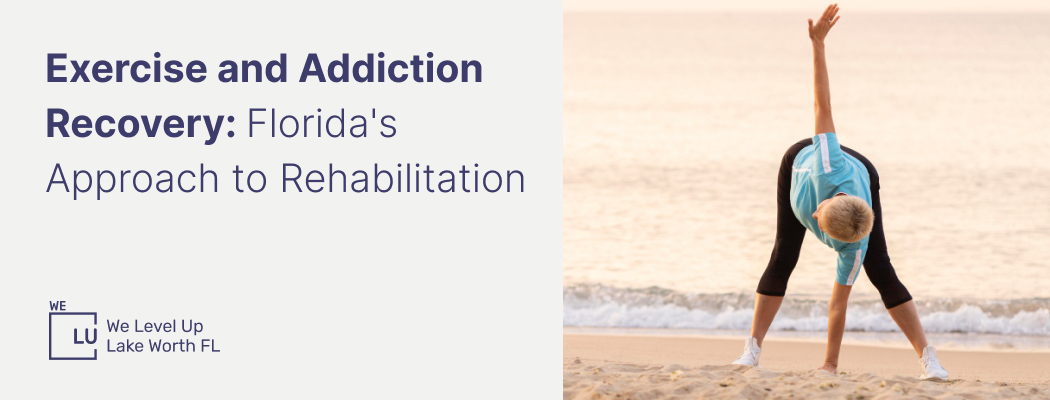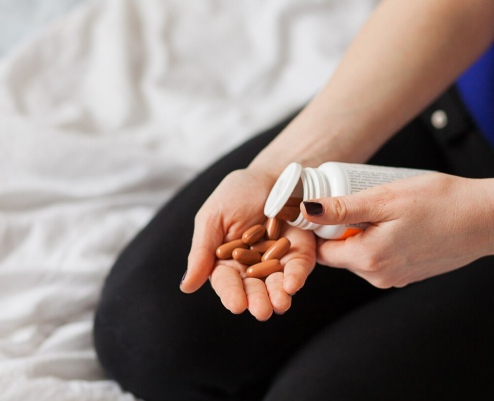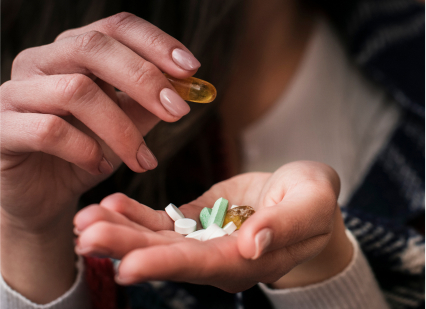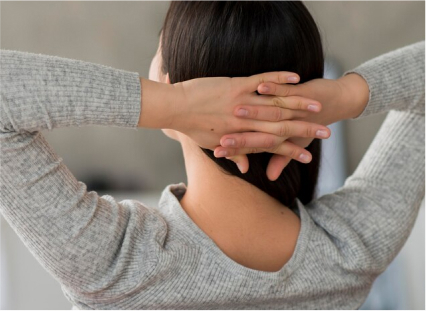The relationship between exercise and addiction recovery has long spiked the interest of both scientists and practitioners. While researchers were aiming to determine the mechanisms of the positive impact working out had, psychotherapists and coaches, got excited about the idea that something as simple as exercising can aid a patient’s addiction recovery.
Exercising on its own is not sufficient to lead to recovery, but as part of a holistic approach to addiction problems, it has a great impact. A holistic approach does not treat addiction as an isolated problem but rather looks at it as a part of an individual. Holistic addiction recovery, therefore, addresses more than just substance disorders. It deals with the whole person, not only their underlying mental health issues but also their strengths, additionally empowering them to take charge of their state and establish a long-lasting recovery.
The holistic approach aims to treat the body, mind, and spirit equally. With that, addiction recovery and exercise become intertwined. Exercise positively impacts both the body and mind, and some would argue the spirit as well. There are a significant number of studies and reviews explaining the mechanisms by which exercise impacts rehabilitation, as well as supporting the claim of a positive link between exercise and addiction recovery.
Skip to:
The Science Behind Exercise and Addiction Recovery
It is widely known that exercise improves overall physical health. Whether you are battling alcohol or drug addiction, you could use complementary therapies. Just like there are numerous benefits of giving up alcohol and drugs, there are multiple advantages of regular workouts. Both of these actions contribute positively to physical and mental health and lead to improvements in brain health, mood, and decision-making. Science suggests that there is a strong and positive connection between exercise and recovery from addiction, which means – the more you workout, the easier your addiction recovery will go.
Studies published by the National Library of Medicine provide convincing evidence that exercises produce a protective effect on recovery from substance use disorders. Training positively impacts overall physical and mental health by providing a reliable routine, filling spare time, and promoting self-confidence. New research also shows promising results regarding its impact on drug and alcohol abuse recovery processes. These findings offer support for the idea of developing exercise-based interventions for treating substance addiction.

According to the same study, those who work out regularly tend to decrease drug self-administration because exercise:
- Serves as an alternative.
- Decreases comorbid risk factors.
- Increases measures of well-being, such as self-efficacy and self-confidence, which are negatively correlated with substance use.
On the neural level, there’s a similar brain response to drugs and exercise. Exercise and drugs like cocaine, amphetamine, and methamphetamine both modulate similar neurotransmitters and intracellular signaling molecules, which explains why one can replace the other. A well-known common denominator for addiction recovery and exercise is dopamine, a neurotransmitter related to the reward center within the brain.
Research has also shown that commitment and good exercise habits reduce cravings and relapse behavior, as well as facilitate detoxification. It was also concluded that regular aerobic exercise can prevent illicit drug use and alcohol abuse while increasing the rate of abstinence.

Understanding the Role of Exercise in Recovery
Exercise helps people stay strong as they go through the various stages of recovery from substance abuse. It‘s highly beneficial because it can reduce withdrawal symptoms and increase a sense of control. As a typical outcome of regular workouts, you get boosts in self-belief, self-esteem, and self-confidence (protective factors against substance use).
Exercise helps recover from addiction in many ways by healing the body and mind. Physical activity promotes sobriety by:
- Relieving stress.
- Promoting overall well-being and mental health.
- Improving the quality and quantity of sleep.
- Reducing the risk of chronic illness.
- Preventing cravings and relapses.
Addiction Recovery and Exercise as a Stress Reliever
Exercise reduces stress in at least two ways. First, by concentrating on physical activities, a person can get into a flow and stay away from places or situations that might be triggering. Second, physical aspects of movement, like increased heart rate, heavy breathing, and muscle movement, help reduce the effects of stress on the body.
Supporting Physical and Mental Wellness Through Exercise
Abstaining from substances can result in mood swings because the good feelings from using them quickly go away. Physical activity provides a natural high that compensates for the lack of good feelings from alcohol or drugs. It is also well-known that working out can help prevent depression and anxiety.

Get Your Life Back
Find Hope & Recovery. Get Safe Comfortable Detox, Addiction Rehab & Dual Diagnosis High-Quality Care.
Hotline (855) 459-2880Exercise for Addiction Recovery and Better Sleep
A good night’s sleep is essential for body and mind recovery from anything demanding, including substance abuse and recovery from it. Those suffering from substance use disorders often have sleep disorders as well, resulting in them feeling constantly exhausted. Even moderate 30-minute exercise can significantly improve your sleep and help the brain reach deep sleep stages that are important for emotional balance.
Workouts as a Health Protector in Addiction Recovery
Substance addiction has an impact on the body. Many people suffer from chronic pain and addiction simultaneously. Vital cells get destroyed, and the immune system weakens, opening the organism to develop chronic illnesses. Exercise is known to reduce the risk of certain types of cancer that people become more prone to due to their addiction and prevent existing conditions from getting worse (resulting from substance abuse).
Recovering From Addiction and Using Workouts to Build Discipline
Exercise helps in recovering from addiction because the benefits of working out support the overall healing process. Exercise improves self-discipline, perceived physical health, and self-belief, all of which give you the confidence to resist drugs and alcohol.

While focusing on exercise and recovery from addiction, neurological research investigated whether different types of exercise had different effects. Results suggest this is the case and that resistance exercise and cycling result in a better neural response. But an exercise routine doesn’t have to be daunting or vigorous. Even moderate but regular exercise provides benefits. Worldwide studies support this claim of the beneficial impact of exercise on addiction recovery for running, aerobic exercise, Tai Chi, and dance.
We Level Up Lake Worth FL, with its well-rounded support for those struggling with substance use, finds that connecting exercise and addiction recovery is indispensable. Knowing all the benefits working out brings to the rehabilitation process, being an integrative part of the program can only complement already existing science-based methods for fighting substance abuse. By strengthening the body, improving sleep quality, promoting discipline, and increasing self-confidence, full addiction recovery is possible.
We Level Up Lake Worth’s Holistic Approach to Addiction Recovery
Professionals at We Level Up Lake Worth FL Treatment Center believe in holistic recovery and that when addressing substance abuse, the body, mind, emotions, and spirit should all be taken care of. In addition to detoxification, we offer various services, including inpatient treatment and rehab programs, as well as alternative therapies such as yoga, acupuncture, and sound therapy. These alternative approaches are part of a comprehensive rehabilitation experience, and, of course, they do not exclude medication use.
Personalized rehabilitation treatment includes multiple rehab programs, like:
- Motivational Interviewing: This is the kind of treatment that focuses on what drives a person and what their motivation is in life. The core idea is to apply this motivation to the addiction recovery process. The purpose is to strengthen your motivation and commitment to the recovery process.
- Cognitive Behavioral Therapy: This method emphasizes introspection to identify patterns of disfunctional behavior and actions. CBT is an evidence-based approach to recognizing and breaking the cycle of destructive thoughts.
- Dialectical Behavioral Therapy: Instead of cognition, this program focuses on feelings. DBT works on emotion regulation and minimization of intense feelings that can result in harmful behavior, like substance abuse.
- Trauma-Focused Therapies: Seeking safety is one of the trauma-focused therapies provided by We Level Up Lake Worth FL. It highlights the importance of coping skills, grounding techniques, and education. It‘s based on the principles of attaining safe thoughts, integrating trauma and substance use, and recreating thoughts lost in the substance use process.
- Medication-assisted treatment: It‘s an approach that combines FDA-approved medications with cognitive and behavioral therapies, as well as alternative therapeutic approaches.
These approaches are predominantly focused on the mind. Other methods that concentrate on the body and spirit should be used to aid them and amplify their effect. Addiction recovery and exercise undoubtedly go hand in hand. We always need to consider using different kinds of therapy because this is the only way to treat the whole person, not just their illness.

Exploring the Wide Range of Therapeutic Options
A holistic approach to addiction recovery, as mentioned before, includes some approaches still considered alternative. A few of these alternative approaches, like meditation, are more researched, as is the impact of yoga and sound therapy in addiction recovery. The idea behind implementing them is to offer a well-rounded experience that helps patients connect with themselves and the world and gives them a sense of being grounded and mindful.
Some of these approaches have a long history in certain Eastern cultures but, with time, gain popularity in the West as well. Now, when combining exercise and addiction recovery, these approaches are a welcome addition to the healing process. Some of the popular alternative approaches are:
- Acupuncture,
- Reiki,
- Yoga,
- Sound Healing,
- Meditation.
Acupuncture Activates the Energy Flow
Acupuncture is an ancient practice of traditional Chinese medicine aiming to create a flow of energy within the body through 2,000 acupuncture points all over the body, known as meridians. The flow of energy (so-called Qi) is believed to determine overall health. Acupuncture activates the body’s natural healing processes and, in the case of addiction, helps reduce cravings and withdrawal symptoms. It is known to calm the side effects of withdrawal, such as nausea, cramps, and insomnia. It has a positive impact on anxiety and irritation as well.
Reiki Shifts Attention to Wellness
Reiki is a form of energy healing that comes from Japan. The process relies on a reiki practitioner who enters the patient’s biofield and, through their hands, transfers universal energy. They do this to affect energy barriers created by physical or mental pain that might turn into illness if not treated. It can be seen as a shift in attention, as it makes the recipient aware of the wellness deep within them, no matter their current health state. It is believed to help with stress and anxiety reduction, enhance a sense of peace and relaxation, and with that, assist in addiction rehabilitation.
Yoga Restors Control
Yoga is a spiritual, mental, and physical practice, making it a perfect part of a holistic approach. It‘s a way to re-establish the connection between mind and body, release toxins, and reduce stress. It assists with creating new coping mechanisms for overcoming negative thoughts and feelings. The role of yoga in recovery treatment is to restore the physical awareness and mental strength necessary to deal with the challenges of rehabilitation. People in recovery typically get a sense of control due to regular yoga practice and develop self-discipline crucial for long-term abstinence from substances.
Sound Healing Rebalances the Body
According to the sound therapy method, chemical addiction gives off a low frequency, which is an abnormality or illness. Sound therapy works through sound waves (frequencies or vibrations) to restore normality to the body. Sound vibrations can penetrate objects, including the human body. They travel to every cell to rebalance it and establish equilibrium. This process is considered part of detoxification. The biggest contribution it makes to the addiction recovery process is a reduction of stress or complete relief from it.
Meditation Brings Peace
Meditation is a mind-body activity that promotes relaxation. The core idea is to allow thoughts and distractions to pass without assessing them. It can be guided or unguided, and it has a variety of techniques. There are transcendental, spiritual, mantra, focused, movement, and mindful meditations. No matter the method, being aware of your inner monolog is important, but mindful meditation really focuses on that awareness. Scientists might have examined this holistic tool more due to its popularity, and research shows that mindfulness training can help the brain in ways that make a big difference in treating addiction and preventing relapses. Meditation helps people feel calm and cope with triggers.
It‘s important to highlight that all these approaches are not meant to replace traditional recovery methods but to complement them. These energy treatments are welcome support in the relationship between exercise and recovery from addiction, contributing to their synergy. They are supplementary health therapies aiming to support rehab with stress reduction and body-mind balance restoration.

Why Choose We Level Up Lake Worth FL
Specialists at We Level Up Lake Worth FL understand the value of a holistic approach and the benefits of combining traditional and alternative medicine. Our professionals can explain the relationship between addiction recovery and exercise, help you develop healthy habits for your body, strong coping mechanisms for your mind, and balanced energy flows for your spirit. Not only do we look at a person as a whole, but we also provide individualized counseling and personalized programs.
Our Lake Worth facility presents a safe environment and offers a serene healing space with the highest care, respect, and confidentiality. We accept most private insurance, making our programs easily accessible.
We are a fully licensed and accredited facility, and our staff is qualified and experienced to provide an individualized approach. From detoxication to evidence-based substance abuse therapies to alternative healing treatments, we offer well-rounded support for your recovery and rehabilitation process.
Considering the importance of having long-term support, staying connected, and being integrated into a community, we developed an alumni program in Florida — a team dedicated to staying connected with you even after you leave the facilities.
Life after inpatient rehab brings many challenges, but we help you stay motivated, stay on track, and keep making progress in your recovery journey.
What You Need to Remember About Exercise and Addiction Recovery
We believe that treating a person is better than treating only their problem. A holistic approach that addresses body, mind, emotions, and spirit aligns with this idea and promotes a complex treatment embodying traditional therapies, alternative healing, and movement. With many options to choose from, We Level Up Lake Worth FL is able to support your unique recovery journey in the way that works best for you.
Medication-assisted treatment can help you heal your body easier. We encourage you to find an enjoyable activity, whether running, dancing, or something more demanding (like weightlifting), and establish an exercise routine. The body of evidence supporting the claims of positive relationships between exercise and addiction recovery keeps growing. Rely on scientific findings and use exercise to facilitate your rehabilitation.
Traditional and well-established therapies can help you reestablish cognitive control, and alternative treatments will help with energy levels and a sense of balance and connection. And our professional team will be with you every step of the way.
Start a New Life
Begin with a free call to an addiction & behavioral health treatment advisor. Learn more about our dual-diagnosis programs. The We Level Up treatment center network delivers recovery programs that vary by each treatment facility. Call to learn more.
- Personalized Care
- Caring Accountable Staff
- World-class Amenities
- Licensed & Accredited
- Renowned w/ 100s 5-Star Reviews
We’ll Call You
Sources:
Lu, Y., Qi, X., Zhao, Q., Chen, Y., Liu, Y., Li, X., Yu, Y. and Zhou, C. (2020). Effects of exercise programs on neuroelectric dynamics in drug addiction. Cognitive Neurodynamics, 15(1), pp.27–42. doi:https://doi.org/10.1007/s11571-020-09647-w.
Priddy, S.E., Howard, M.O., Hanley, A.W., Riquino, M.R., Friberg-Felsted, K. and Garland, E.L. (2018). Mindfulness meditation in the treatment of substance use disorders and preventing future relapse: neurocognitive mechanisms and clinical implications. Substance Abuse and Rehabilitation, [online] Volume 9(9), pp.103–114. doi:https://doi.org/10.2147/sar.s145201.
Smith, M.A. and Lynch, W.J. (2012). Exercise as a Potential Treatment for Drug Abuse: Evidence from Preclinical Studies. Frontiers in Psychiatry, 2. doi:https://doi.org/10.3389/fpsyt.2011.00082.





